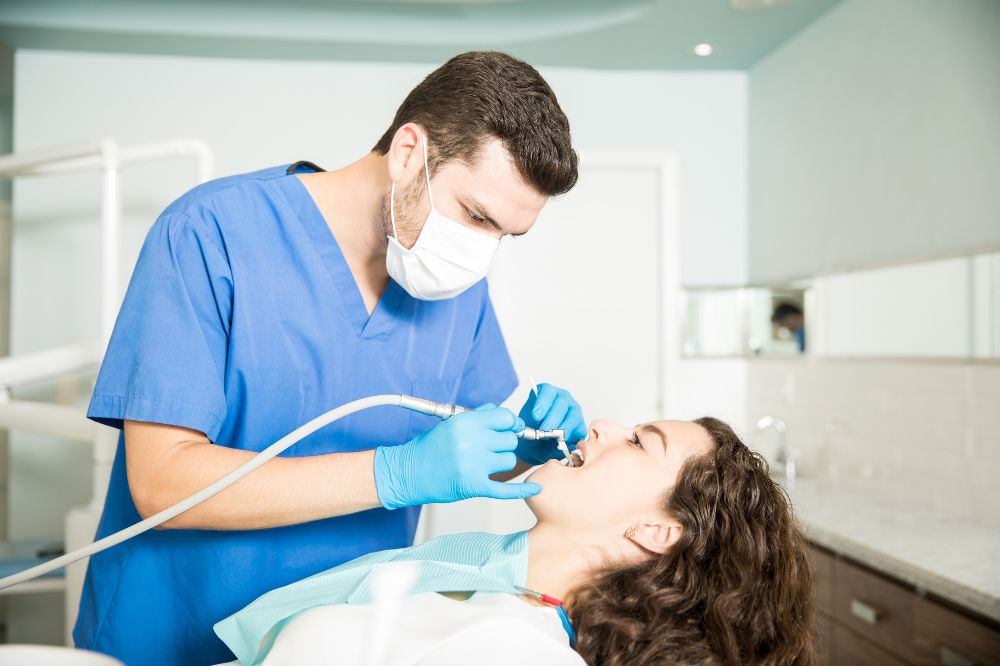Regular dental cleanings and checkups in Duncan are an important part of keeping your teeth and gums healthy. Even if you brush and floss your teeth every day, you still may have plaque and tartar in the tight spots. If this plaque and tartar buildup go without attention, it might lead to cavities or gum issues down the road.
Throughout this blog, we will explain how often you should see the dentist and why these visits are important. We will also provide examples of preventive care to help you avoid costly treatments down the road and some helpful tips provided by the experts to keep you on track with your oral health between those dental visits.
Why Are Regular Dental Checkups Important?
Dental examinations do more than just identify cavities. They aid in the early detection of gum disease, oral cancer, and other undetectable issues. Professional cleanings keep your mouth healthy and your smile bright by removing stubborn tartar that your toothbrush cannot remove.
To keep your oral health in excellent condition, a dental clinic in Duncan also offers individualized guidance on brushing and flossing practices as well as fluoride treatments.
How Often Should You Visit the Dentist?
Most dentists recommend visiting every six months for a cleaning and exam. However, the timing may change based on your oral health.
- Every 3 to 4 months, if you have gum disease or often build up plaque.
- Every 6 months for most adults and children with healthy teeth.
- An annual checkup is always wise, but it is wise to consult someone who knows individuals.
Avoiding regular checkups can lead to problems, such as cavities or gum infections. Other dental issues may be developing that could lead to pain or cost a lot to fix.
What Happens During a Dental Cleaning?
Tooth polishing is only one aspect of a dental cleaning. Typically, the procedure consists of:
- Scaling involves cleaning teeth and gum lines of plaque and tartar.
- Polishing reduces plaque buildup and helps to smooth out the teeth.
- Fluoride treatment strengthens enamel to prevent cavities.
- An oral examination that looks for signs of cavities, gum disease, or oral cancers.
How Can You Keep Your Teeth Healthy Between Visits?
To maintain your teeth and keep them healthy between visits to the dental clinic:
- Use fluoride toothpaste and brush your teeth twice each day.
- Floss at least once a day to help remove food particles.
- Make healthy food choices, and water is always a better choice than sugary snacks.
- Change your toothbrush every three months and buy one with soft bristles.
Remember that it is better to visit a dental clinic near you if you have pain, bleeding gums, or discomfort rather than wait until your annual dental exam.
Are Dental Cleanings Different for Children Compared to Adults?
Yes! Children may receive fluoride or sealants at their appointment to help prevent early cavities. For adults, it becomes more about preventing gum disease, deep cleaning when necessary, and looking for wear on the tooth or any sensitivity.
Prevent Problems Before They Start – Visit Us Today!
Want to be sure you have healthy and strong teeth year-round? Cowichan Valley Dental offers full cleanings, full exams, and personalized dentistry for the whole family! Make your appointment today; let our team take care of your smile!
FAQs
Are dental checkups painful?
Not at all, though you might feel a slight pressure when the tartar is removed.
Can I skip cleanings if I do well brushing at home?
No, brushing or cleaning at home doesn’t remove hardened tartar, which has to be cleaned professionally.
When is the best time of day for a dentist appointment?
Generally, mornings feel best as you are less likely to have any food particles on your teeth.
Should I get my teeth cleaned if I have braces?
Yes, with braces, you will be trapping food between the tooth and the bracket, which is why you will want to have it cleaned every 3-4 months.
Can a dental checkup tell me if I have health problems in addition to my teeth?
Yes, a dentist will often see the early signs of things like diabetes, infections, or vitamin deficiencies.







